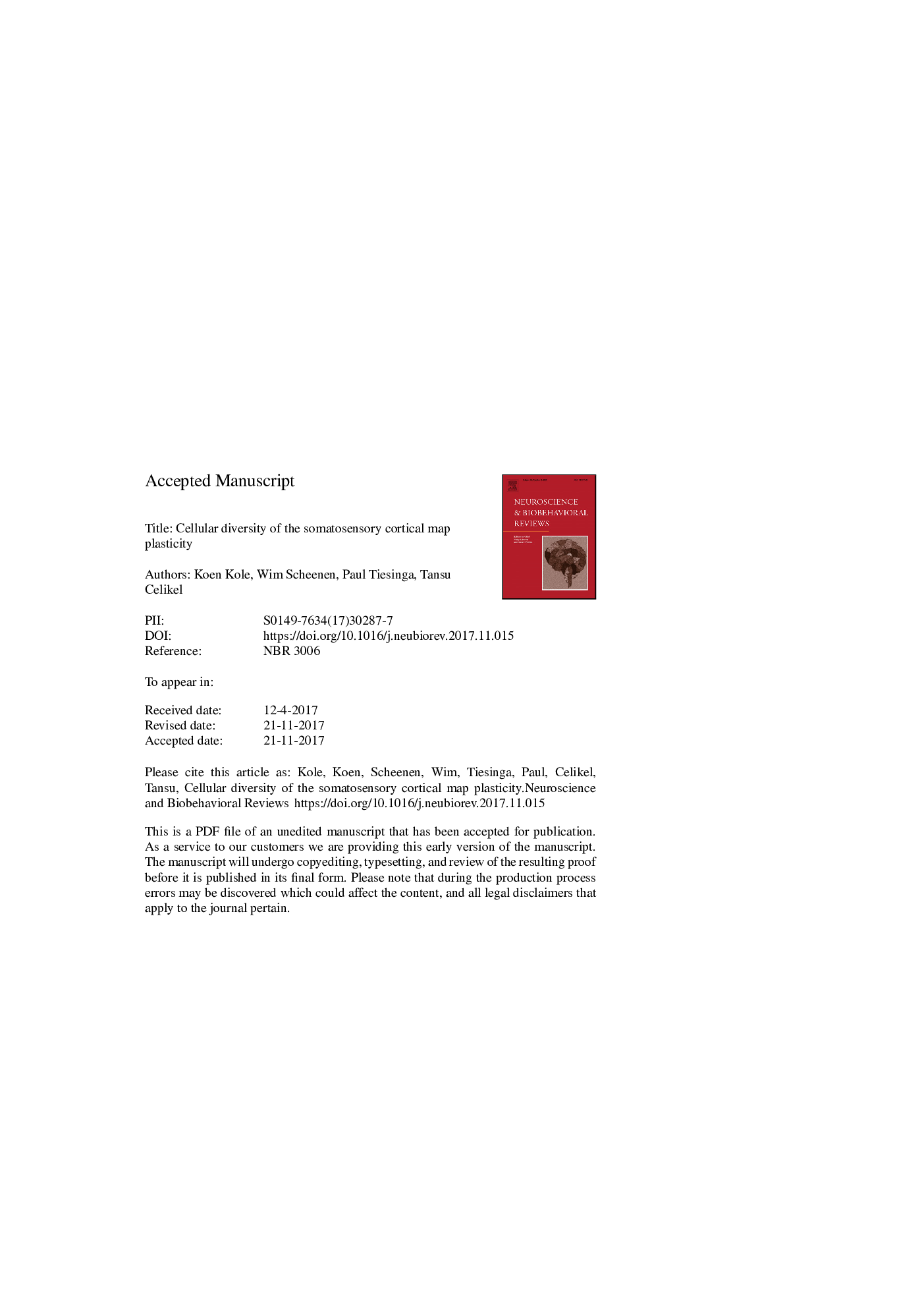| Article ID | Journal | Published Year | Pages | File Type |
|---|---|---|---|---|
| 7302189 | Neuroscience & Biobehavioral Reviews | 2018 | 38 Pages |
Abstract
Sensory maps are representations of the sensory epithelia in the brain. Despite the intuitive explanatory power behind sensory maps as being neuronal precursors to sensory perception, and sensory cortical plasticity as a neural correlate of perceptual learning, molecular mechanisms that regulate map plasticity are not well understood. Here we perform a meta-analysis of transcriptional and translational changes during altered whisker use to nominate the major molecular correlates of experience-dependent map plasticity in the barrel cortex. We argue that brain plasticity is a systems level response, involving all cell classes, from neuron and glia to non-neuronal cells including endothelia. Using molecular pathway analysis, we further propose a gene regulatory network that could couple activity dependent changes in neurons to adaptive changes in neurovasculature, and finally we show that transcriptional regulations observed in major brain disorders target genes that are modulated by altered sensory experience. Thus, understanding the molecular mechanisms of experience-dependent plasticity of sensory maps might help to unravel the cellular events that shape brain plasticity in health and disease.
Keywords
Related Topics
Life Sciences
Neuroscience
Behavioral Neuroscience
Authors
Koen Kole, Wim Scheenen, Paul Tiesinga, Tansu Celikel,
